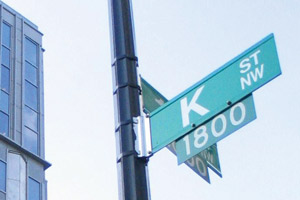[Update: Mother Jones reached out to Julie Domenick, the lobbyist mentioned in the New York Times‘ story today, who says the circumstances surrounding the event for Rep. Joe Crowley were much different from how the Times reported them. Her response is below.]
Eight members of Congress, Democrats and Republicans both, are under investigation for—get this—taking special interest money at the same time they write and pass major legislation. Which is to say, business as usual. The investigation, which the New York Times reports on today, is something of a head-scratcher.
On the one hand, there’s no denying the huge conflict of interest when lawmakers take money from, say, auto dealers while writing a bill that may or may not impose new oversight on those same dealers. (As you might’ve heard, the dealers got what they wanted.) But, sad to say, that’s how Washington operates. The only way House or Senate members can really get in trouble is if there’s a clear quid pro quo. But here’s the catch: proving that campaign funds (or some type of perk) directly resulted in some (in)action by a lawmaker is very hard to prove.
Nonetheless, the Office of Congressional Ethics is investigating Democratic and Republican congressmen for receiving big-time financial sector money and attending industry-tied fund-raisers within 10 days of the House’s December 11, 2009, passage of its version of financial reform. According to the Times‘ story, the eight members under investigation collectively hauled in $140,000, and seven of them held fundraisers during that period, too:
For example, on Dec. 10, one of the lawmakers under investigation, Representative Joseph Crowley, a New York Democrat who sits on the Ways and Means Committee, left the Capitol during the House debate to attend a fund-raising event for him hosted by a lobbyist at her nearby Capitol Hill town house that featured financial firms, along with other donors. After collecting thousands of dollars in checks, Mr. Crowley returned to the floor of the House just in time to vote against a series of amendments that would have imposed tougher restrictions on Wall Street.
That same day, Representative Tom Price, a Georgia Republican on the Financial Services Committee, scheduled what he called a “Financial Services Luncheon” at the Capitol Hill Club, as part of a fund-raising push that netted him nearly $23,000 in contributions from the industry in a two-month period around the vote.
In an area where the rules are murky, the investigators are taking an aggressive stance on what constitutes unethical conduct. The independent ethics office, led by a former federal prosecutor, has clashed repeatedly with lawmakers on the House Committee on Standards of Official Conduct, who have accused it of over-reaching. Given this history, observers believe it is unlikely that the committee will admonish any members, even if the investigators recommend action.
From all the press reports I’ve read, I’d have to agree. It’s deeply troubling to see members of Congress ducking out of floor debates to attend fundraisers with lobbyists representing the very industry they’re talking about regulating—but is there clear quid pro quo there? Is there hard proof that Crowley’s fundraiser on December 10 resulted in his votes against new amendments that would’ve cracked down on Wall Street? Not on the face of it. (In a statement, a Crowley spokesman told the Times, “Congressman Crowley has always complied with the letter and spirit of all rules regarding fund-raising and standards of conduct.”)
The Times article also mentions that ethics investigators have requested “all files, correspondence, e-mails, receipts, notes, and any other documents” on the fundraiser for Rep. Crowley from the lobbyist who hosted the event, Julie Domenick. If there’s a smoking gun to be found, that’s likely where investigators will find it. And maybe investigators do have an ace up their sleeve here, a damning email or letter that links money to votes that clinches the investigation.*
If they don’t, though, it’s hard to see how this probe will result in anything other than some embarrassing press clippings for the eight lawmakers under investigation.
* Mother Jones spoke with Domenick today, who said the Times’ depiction of the event for Crowley was inaccurate and unfair. According to Domenick, whose clarifications were also reported today by the Center for Public Integrity, the Crowley fundraiser was scheduled for December 10 more than a month beforehand, in a set of emails in early November. As such, Domenick says, it was impossible for the event to be connected to the House’s financial reform vote because no one knew a month in advance when the vote would occur, and she told CPI the event “had nothing to do with what was going on the House floor.”
Here are the lawmakers in potential hot water:
Rep. Jeb Hensarling (R-Tex.)
Rep. Joseph Crowley (D-NY)
Rep. John Campbell (R-Calif.)
Rep. Christopher Lee (R-Calif.)
Rep. Earl Pomeroy (D-ND)
Rep. Mel Watt (D-NC)
Rep. Tom Price (R-Ga.)
Rep. Frank Lucas (R-Okla.)















